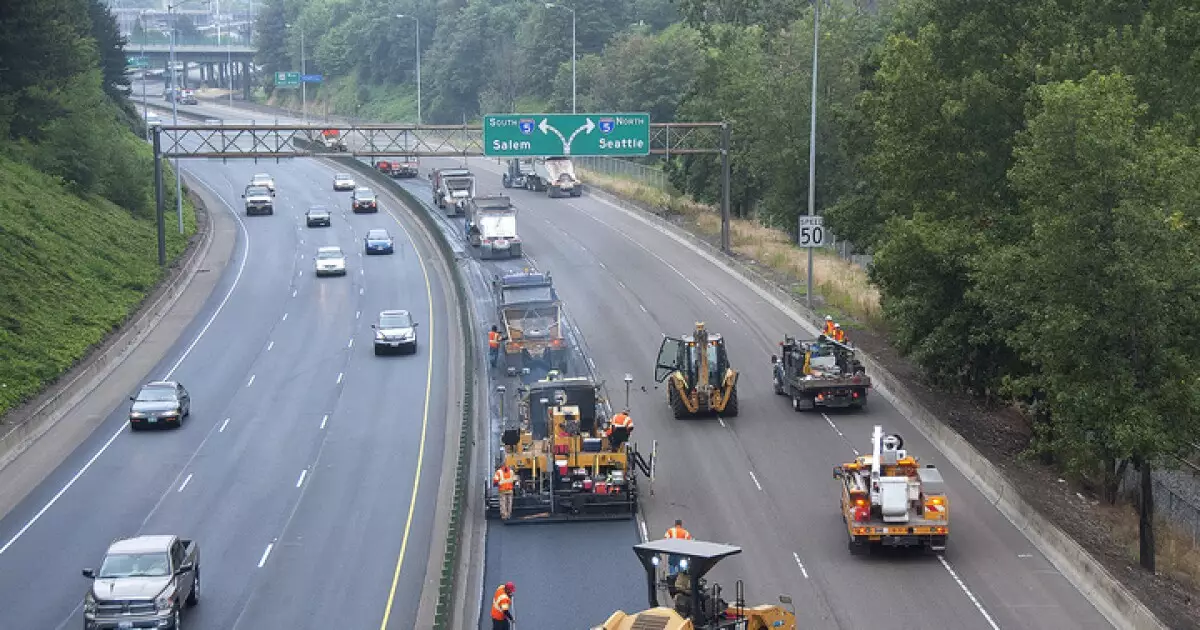In a climate where tax fatigue is palpable, Oregon’s House Bill 2025 proposes a staggering increase in taxes and fees amounting to a projected $14.6 billion over the next decade. Supporters within the Oregon Democratic party frame this bill as a transformative leap toward modernizing the state’s crumbling infrastructure. Yet beneath the surface, one cannot help but question the validity of such sweeping claims. Will this bill actually address the critical issues of aging bridges and highways, or is it merely a façade for political maneuvering?
Democratic Senator Chris Gorsek hails the legislation as a solution to “potholes and plowed roads,” yet history tells us that big-ticket projects often come laden with inefficiencies, delays, and waste. Alarmingly, the state’s recent experience with emergency funding—$19 million to ensure highways were snow-free—illustrates a chronic inability to maintain even basic services. If emergency funding is required for something as fundamental as snow removal, what guarantees do we have that the vast sums from this proposed bill will be allocated effectively?
Public Sentiment and Political Drama
The bill’s path through the Oregon legislative landscape has not been smooth, sparking considerable debate among lawmakers and residents alike. With 61% of Oregonians reportedly opposed to this tax hike—a sentiment echoed by vocal testimony against the proposal—one must ponder why Democratic leaders are obstinately pushing forward. The maneuvering within the Joint Committee on Transportation Reinvestment, where dissenting voices were dismissed to secure approval, raises troubling questions about the integrity of the legislative process itself.
Senate President Rob Wagner’s replacement of Sen. Mark Meek to ensure committee approval appears less a matter of consensus-building and more an effort to impose a party line. As we scrutinize this maneuvering, it becomes clear that genuine democratic engagement—the kind that considers the voices of all constituents—seems to have taken a back seat to party interests. Sadly, the Oregon Democrats’ actions suggest that they are more focused on a legislative victory than on genuine stewardship of public resources.
Alternative Solutions or Tax Schemes?
Republican lawmakers have proposed an alternative to the massive tax hike, advocating for a transportation bill that relies on reallocating climate relief funds. While opposing parties often have divergent views, it’s significant that this proposal emphasizes accountability without burdening taxpayers further. Their approach aims to restore trust in the Oregon Department of Transportation (ODOT) rather than adding new taxes that residents clearly do not support.
What’s particularly compelling about this debate is how it reflects broader national sentiments regarding taxation and government efficiency. As voters increasingly demand transparency and accountability from their elected officials, Oregon’s handling of this issue could serve as a case study in the current political climate. The persistent dissatisfaction echoed by residents is a vivid reminder that voters are not just passive recipients of government policies; they are active stakeholders who deserve to have their concerns addressed meaningfully.
The Pitfalls of Reckless Spending
Amidst the swirling rhetoric, we must confront the core issue: the actual willingness and ability of the government to spend effectively. History is replete with instances where excess spending has resulted in poor outcomes, often benefiting specific interests rather than the public at large. The rhetoric of “transformative investment” should not distract us from the fact that such investments come with risks, particularly if they lack accountability.
Will this expansive transportation package merely be another chapter in a long saga of mismanagement? For all the promises of fixing potholes and stabilizing bridges, we must remain cautious about where the money will actually go and who will benefit from it. If Oregonians are expected to dig deeper into their wallets, they deserve an honest accounting of how those funds will be utilized—and results that reflect their investment.
Oregonians are justified in expecting better from their government. The pressing question remains: will the state prioritize responsible funding solutions or continue to push through a controversial tax proposal driven more by political expediency than by the needs of its constituents?

